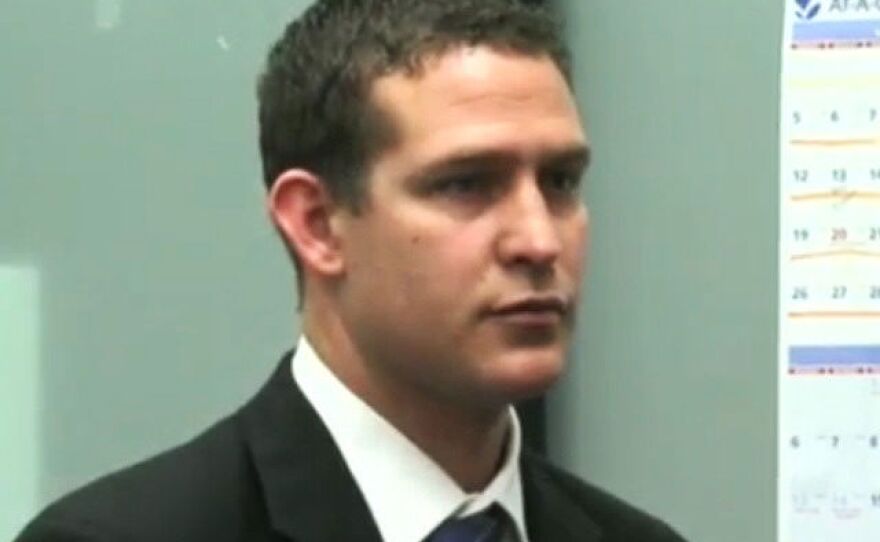A San Diego police officer accused of inappropriately touching and sexually assaulting women in their 20s and 30s during pat-down searches was charged Tuesday with five criminal counts, including felony false imprisonment and misdemeanor sexual battery.
Officer Christopher Hays — a four-year veteran of the San Diego Police Department — will resign effective Tuesday or Wednesday so he can fight the charges against him, defense attorney Kerry Armstrong told reporters.
"He's not going to resign because he's done anything wrong," Armstrong said. "He's extremely upset with the police department for not backing him in this case, and it's really hurt him. He's very upset about it and he thinks that his career in law enforcement is over because of these allegations."
Armstrong said he thinks the allegations are either a "fabrication" or a "mistake" on the part of the alleged victims.
Hays pleaded not guilty to the charges before Judge David Szumowski, who allowed the 30-year-old defendant to remain free on $130,000 bail and ordered him to have no contact with the four alleged victims named in the complaint.
An April 22 preliminary hearing is set for Hays, who faces up to three years and eight months in prison if convicted.
The charges filed against Hays — two counts of false imprisonment and three misdemeanor counts of sexual battery — involve four women who were allegedly victimized between October and December of last year, according to District Attorney Bonnie Dumanis.
Three other women have come forward to allege they were victimized by Hays. The case is still under review and more charges are possible, Dumanis said.
"This defendant was in a position of authority and abused the public trust," Dumanis said. "We're working on behalf of the people of San Diego to hold him accountable for these crimes."
Hays surrendered to authorities Feb. 9, was booked into jail and released after posting bail.
One of Hays' alleged victims told police the officer forced her to perform a sex act in the back of his patrol car, prosecutors said.
Hays is a former Marine and married father of two whose father-in-law is San Diego Police Assistant Chief Mark Jones.
The defendant had been under investigation on suspicion of improperly touching women while detaining them for various reasons, ranging from a domestic violence call to a suspected shoplifting incident, according to SDPD officials. He has been on paid leave since the first allegation arose in late December.
"It's my understanding that once the first female made this allegation, that the police department either called or sent letters out to these other women he had contacted," Armstrong said. "To me that's a big red flag."
In mid-January, the case was forwarded to the San Diego County District Attorney's Office, which was tasked with reviewing it and filing charges. Hays was then placed on unpaid leave.
Four alleged victims told investigators that Hays, assigned to the Mid-City Division, improperly touched them through their clothing, with no "skin-to-skin contact," said San Diego police Chief William Lansdowne.
"With all due respect, Chief Lansdowne has been on TV the last several days calling these women victims," Armstrong told reporters. "And to me, they're only victims if a jury of 12 people says they're victims. At this point, the police department is supposed to be fair, they're supposed to be unbiased when they do their investigation, and yet the head of the police department is saying that these women are victims, and that upsets my client."
Anyone who thinks they may have victimized should contact the San Diego Police Department at (619) 531-1550 or the District Attorney's Office at (619) 531-3965, Dumanis said.







